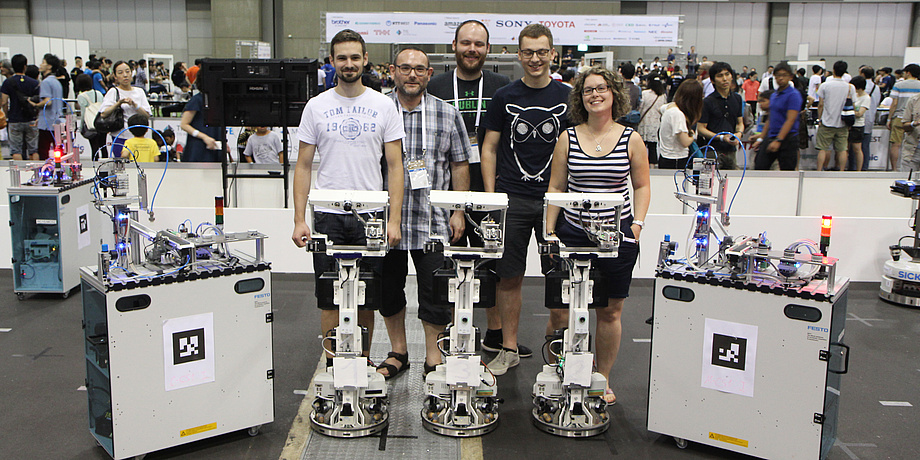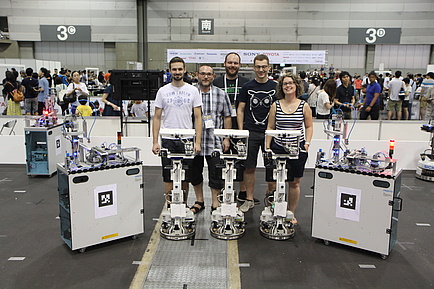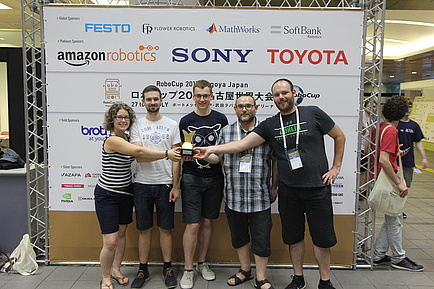The people behind GRIPS, short for Graz Robust and Intelligent Production System, are Sarah Haas, Jakob Ludwiger, Thomas Ulz and Marco Wallner. The team’s celebrations also extend to mentor Gerald Steinbauer from the Institute of Software Technology at TU Graz and its partners and sponsors. Apart from TU Graz itself – above all the Institutes of Software Technology, Technical Informatics and Automation and Control – powerful support comes from Knapp AG and incubedIT.
By Susanne Eigner
Another major success for a student team from TU Graz: GRIPS RoboCup team wins second place in the “Logistics” league of the RoboCup 2017 in Nagoya, Japan.
The people behind GRIPS, short for Graz Robust and Intelligent Production System, are Sarah Haas, Jakob Ludwiger, Thomas Ulz and Marco Wallner. The team’s celebrations also extend to mentor Gerald Steinbauer from the Institute of Software Technology at TU Graz and its partners and sponsors. Apart from TU Graz itself – above all the Institutes of Software Technology, Technical Informatics and Automation and Control – powerful support comes from Knapp AG and incubedIT.
Information
Contact
Assoc.Prof. Dipl.-Ing. Dr.techn.
TU Graz | Institute of Software Technology
Supervisor Team GRIPS
Phone: +43 664 1688926
E-Mail: steinbauer@ist.tugraz.at or grips.tugraz@gmail.com



